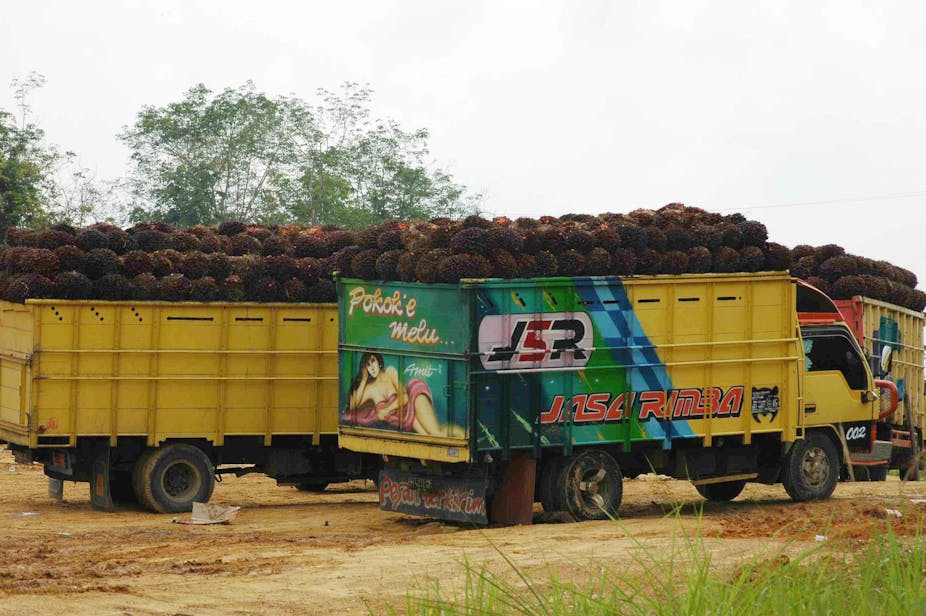The most important factor determining whether consumers avoid purchasing a product containing palm oil is not how they feel about orangutans, the environment, or anything else for that matter. It’s whether they know what’s in the product.
Research by Melbourne Business School and Zoos Victoria reveals that consumers’ ability to diagnose whether a product is made with palm oil is the leading driver of whether they choose a palm-oil free product over a similar product that is, or could be, made with palm oil.
Hurting orangutans, but you’d never know it
According to the Roundtable on Sustainable Palm Oil (RSPO), a consortium of stakeholders from various sectors of the palm oil industry, the last 20 years have witnessed a growth of 43% in the amount of land being used to cultivate palm oil.
The vast majority of this area – over 85% – is in Malaysia and Indonesia, in zones inhabited by wild orangutans. By some estimates, the deforestation resulting from palm oil production leads to the loss of as many as 2,500 orangutans a year.
Current FSANZ regulations do not require that palm oil be labeled as such on food product packaging, but instead may be included on the list of ingredients under the broader term “vegetable oil”. There is no way of knowing whether a product that is made with “vegetable oil” specifically contains palm oil.
Explicit palm oil labeling on product packaging could let consumers make an informed choice about how their purchases affect the welfare of orangutans and their environment.
Product labelling really does make a difference
In a series of experiments in 2010, visitors to the Melbourne Zoo were asked to select between various packets of chips that did not contain palm oil, and close alternatives that contained vegetable oil.
Participants were asked what they thought about ethical consumption, wildlife preservation, political activism, and human-like characteristics of primates to see if these affected which products were selected.
One group chose from products that had no labelling about palm oil.
The second group’s products included a packet of chips with a large sticker on it. The sticker had a baby orangutan’s face, along with the words “Orangutan-friendly – No Palm Oil”.
A third group had no stickers on their packaging, but did see an information sheet listing which foods (including potato chips) were made with and without palm oil.
Visitors who saw the sticker or the information sheet were significantly more likely to choose the palm-oil free chips.
Product packaging labeling or point-of-sale information can have a real influence on whether people purchase ethically-made foods.
A follow-up study found that giving people the feeling they could figure out if a product had palm oil also affected their choices.
Information makes us care
If we want people to choose ethically produced foods, there are two things we should do: give consumers the information they need about whether palm oil is in the product, and raise awareness of the issues about palm oil.
Perhaps the most striking finding from the research was what factors aren’t relevant.
How consumers felt about whether ethically-produced goods should be purchased, or whether we should save the animals, or whether primates can love or feel hope just like we humans can, made no difference.
None of those things will save the orangutans nearly as much as whether we can spot and process what’s in what we eat.

